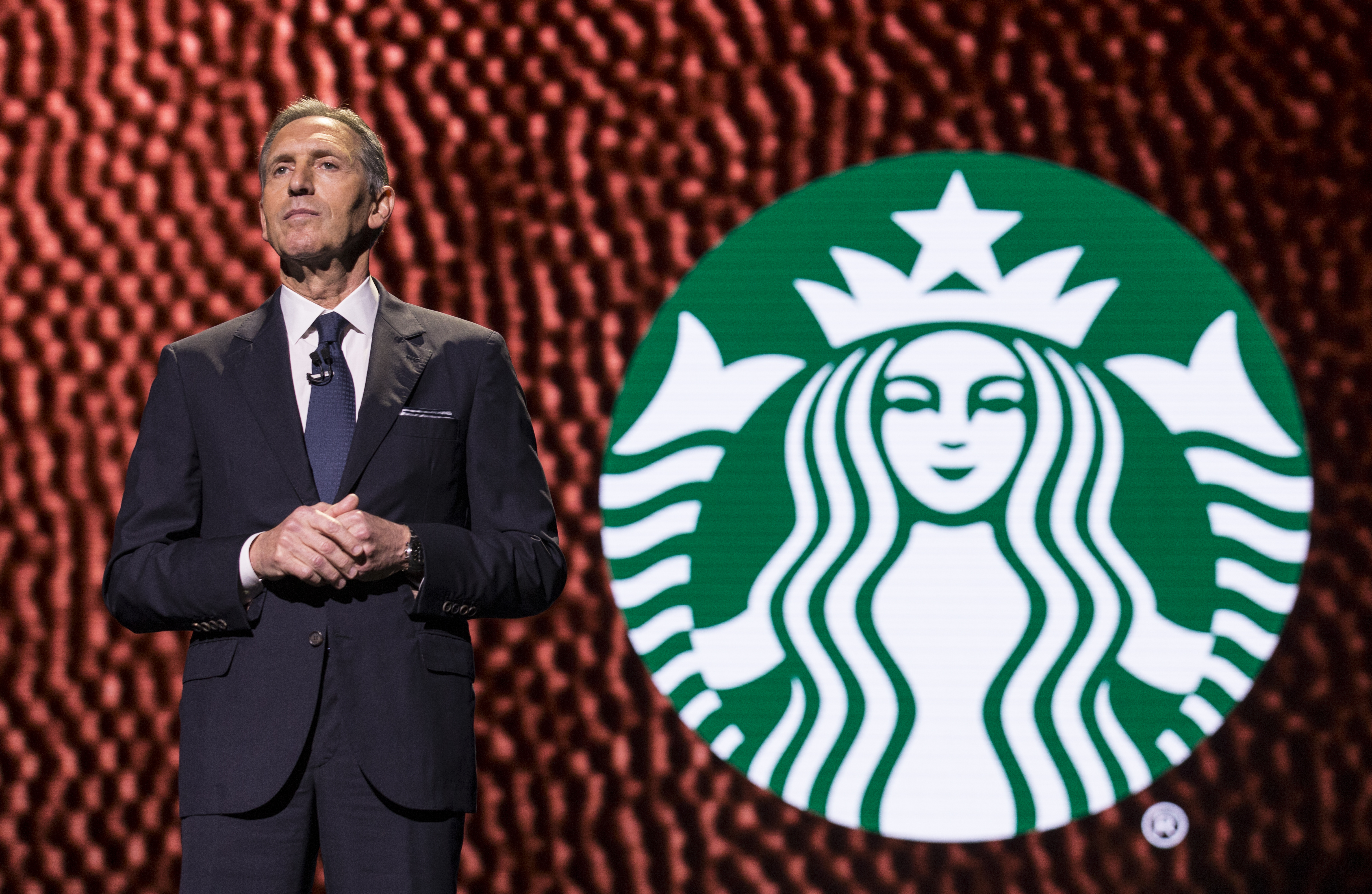As Starbucks responds to the arrest of two African American men in one of its Philadelphia locations, the company has taken public steps to preserve its reputation — and start a constructive conversation about race in America. CEO Kevin Johnson announced that 8,000 stores will close for anti-bias training, the company publicly apologized on Twitter and the white store employee who called the police has left the company.
On “CBS This Morning,” Starbucks executive chairman Howard Schultz told Gayle King that the employee “demonstrated her own level of unconscious bias” when she called 911 on the two men.
“I’m embarrassed by that. I’m ashamed of that,” he told King. “That’s not who Starbucks is. That’s not who we’ve been and that’s not who we’re going to be.” Schultz promised to address and fix the issue of racial profiling at the May training.
While the episode has the potential to negatively impact Starbucks’ socially responsible reputation, the company’s decision to shut down thousands of stores and host racial-bias training for 175,000 employees sends a message that its leaders are going beyond damage control mode and committing to preventing future incidents.
As Alan Murray wrote in Fortune’s CEO Daily newsletter, Johnson was “the picture of contrition” as he embarked on a public apology tour in the days after the incident. He accepted full responsibility of the situation, calling it “a management issue,” even though there’s no evidence the company’s policies were at fault.
This is the most recent example of a company taking a stance on political and social justice issues, reflecting a “big change” taking place among business leaders today, according to Harvard Business School professor and former Medtronic CEO Bill George.
“I think more and more CEOs are having the courage to find their voice and stand up for what they believe in,” he told Thrive Global.
For example, following the white supremacist rallies in Charlottesville last summer, Merck CEO Kenneth Frazier became the first of President Trump’s advisers to “speak out and step down” due to the president’s noncommittal response. And in the wake of the school shooting in Parkland, Florida, Dick’s Sporting Goods CEO Edward Stack decided to stop selling assault-style weapons, high-capacity magazines and guns of any kind to people younger than 21.
Since a company’s leader dictates the morals and values practiced by its employees, this represents an important and long overdue shift in the corporate sphere. “Do the right thing,” George said. “Do you take a risk? Absolutely. But if you don’t, the greater risk is that you don’t believe in anything.”


